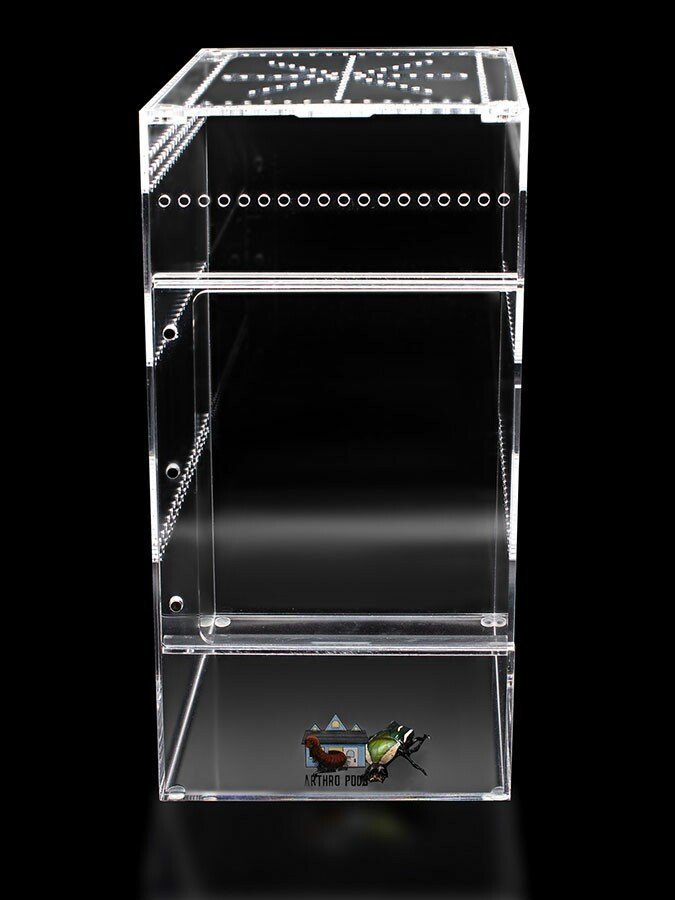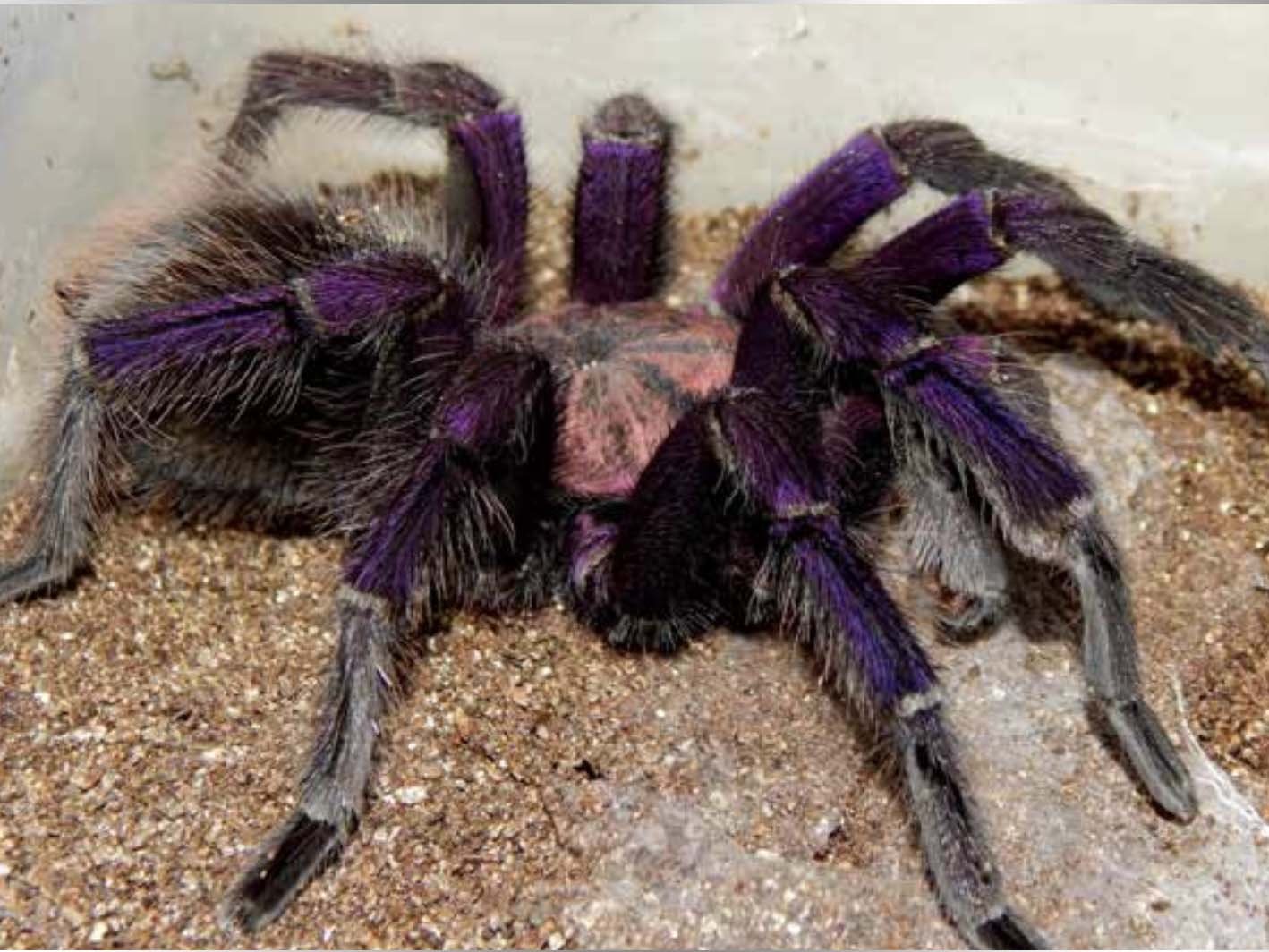Tapinauchenius violaceus
Commonly known as the "Purple Tree Spider”. This Arboreal tarantula from South America is an eye-catching species. However, they may not be a suitable pet for everyone. These tarantulas are a New World species that do not have urticating hairs, which can cause skin irritation. However, according to anecdotal evidence, their bite may be slightly more medically significant than other New World species. Although they are not known to be aggressive, they can move quickly, making them difficult to find if they escape their enclosure. As slings, their darker brown coloration can blend in with furniture, making it challenging to locate them. Nevertheless, they are worth keeping as they are active, not too large, do not pose a threat, and their adult coloration is stunning. If you are experienced with Old World species, you will find them easy to care for. However, they are not recommended for beginners.
Commonly known as the "Purple Tree Spider”. This Arboreal tarantula from South America is an eye-catching species. However, they may not be a suitable pet for everyone. These tarantulas are a New World species that do not have urticating hairs, which can cause skin irritation. However, according to anecdotal evidence, their bite may be slightly more medically significant than other New World species. Although they are not known to be aggressive, they can move quickly, making them difficult to find if they escape their enclosure. As slings, their darker brown coloration can blend in with furniture, making it challenging to locate them. Nevertheless, they are worth keeping as they are active, not too large, do not pose a threat, and their adult coloration is stunning. If you are experienced with Old World species, you will find them easy to care for. However, they are not recommended for beginners.

Commonly known as the "Purple Tree Spider”. This Arboreal tarantula from South America is an eye-catching species. However, they may not be a suitable pet for everyone. These tarantulas are a New World species that do not have urticating hairs, which can cause skin irritation. However, according to anecdotal evidence, their bite may be slightly more medically significant than other New World species. Although they are not known to be aggressive, they can move quickly, making them difficult to find if they escape their enclosure. As slings, their darker brown coloration can blend in with furniture, making it challenging to locate them. Nevertheless, they are worth keeping as they are active, not too large, do not pose a threat, and their adult coloration is stunning. If you are experienced with Old World species, you will find them easy to care for. However, they are not recommended for beginners.
What's the ideal diet for a Purple Tree Spider?
All Tarantulas can eat a variety of feeders. Stick to crickets, dubia roaches, silkworms, horned worms occasionally, and a superworm or mealworm as the occasional treat!
How should I keep a Purple Tree Spider?
For this particular creature, you can start with a small Arboreal Bliss enclosure, and when they get to be about ⅓ the size, you will want to upgrade to a medium or large Arboreal Bliss enclosure. Feed them as slings once a week, twice if their opisthosoma (abdomen) looks small, but if the opisthosoma is wider than their prosoma (pneumothorax), then wait a couple of days to feed. For juveniles or adults, stick to feeding once a week, nothing larger than their opisthosoma. Make sure to keep a full water dish at all times; wider and deeper is fine. Your tarantula can’t drown; they float on water.
How long could a Purple Tree Spider live?
Females are believed to live around 6-9 years, with males only living between 2-3 years. All estimates are based on multiple sources.
Photo courtesy of Wikipedia (CC BY-SA 4.0)












